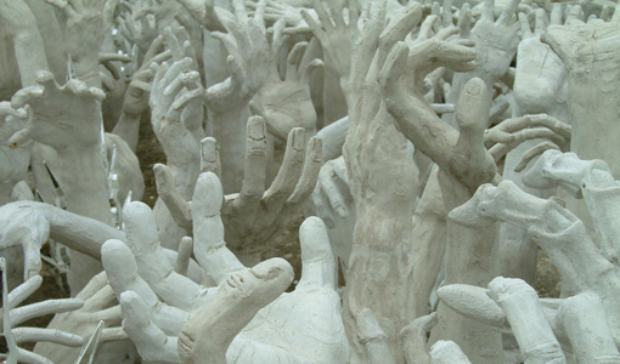One of goals of the Catholic Studies department is to prepare students to integrate Catholic thought and the professions. As a research scientist, how do you achieve this integration?
We sometimes try to view education as a mere “tool” to an end, but I think that’s an inappropriate way of looking at Catholic Studies. The question shouldn’t just be “how is this study going to help me in my work?” In fact, some of the best work is done when you are faced with a mystery and you don’t know what’s going on. In my field of research and development, or for anyone who’s trying to invent, develop or discover something, you have to be big enough to admit that you don’t have all the answers. You have to have a certain inner courage and the type of faith that allows you to continue to move forward. One of the things I was taught by the Church is that the world is rational; that it does make sense and that it is fundamentally good. The physical world is one where you can test things: You can ask questions and get answers. Most of my colleagues in science share this sensibility, a respect for nature and its mysteries.
Every so often there are, of course, great world-changing discoveries in science. Most of us, however, get only one or two small moments when we can participate in such discovery. It’s not expected, and it comes not with a bang but very subtly. It brings joy. To be aware of it, to be open to it, takes the kind of faith formation we are talking about here. This is where I’m tremendously in debt to my upbringing, to my Catholic beliefs.
Catholic Studies has been a great friend to us because it has strengthened us. Not only has it been a type of mentor, or counselor, for me personally, but it’s been a way for us to get together and to celebrate. There’s a lot of great vitality here as well as professionalism. People are drawn in from all walks of life. I think that’s pretty extraordinary.
Catholic Studies should continue to be reflective about its performance even if it thinks it is achieving success. We can always try to do better. The former mayor of New York Ed Koch would walk down the street and see the guys out there in the fruit market and ask, “Hey, how am I doing?” That’s a healthy attitude, and I think that’s something the Center is committed to. The Center is definitely poised to play an increasingly important role in the university. You don’t get good opportunities like this every day. When they do come by you have to seize the moment.
“One of the things I was taught by the Church is that the world is rational; that it does make sense and that it is fundamentally good.” — Eugene Sitzmannn Jr.
I think this is one of those moments.
It is interesting to me to see how an experiment starts out with an idea, from humble beginnings, and if the conditions are right it grows and flourishes. As a scientist, I say to myself, “Okay, Eugene. Put on your scientific thinking cap. Is this a discovery? Is this real?” Then I go through the forms of the test. Kick the tires. Be open and explore; use reason to validate. The Catholic tradition always encourages discerning and testing. I think that’s what is going on here right now. And it’s very good, very healthy.






